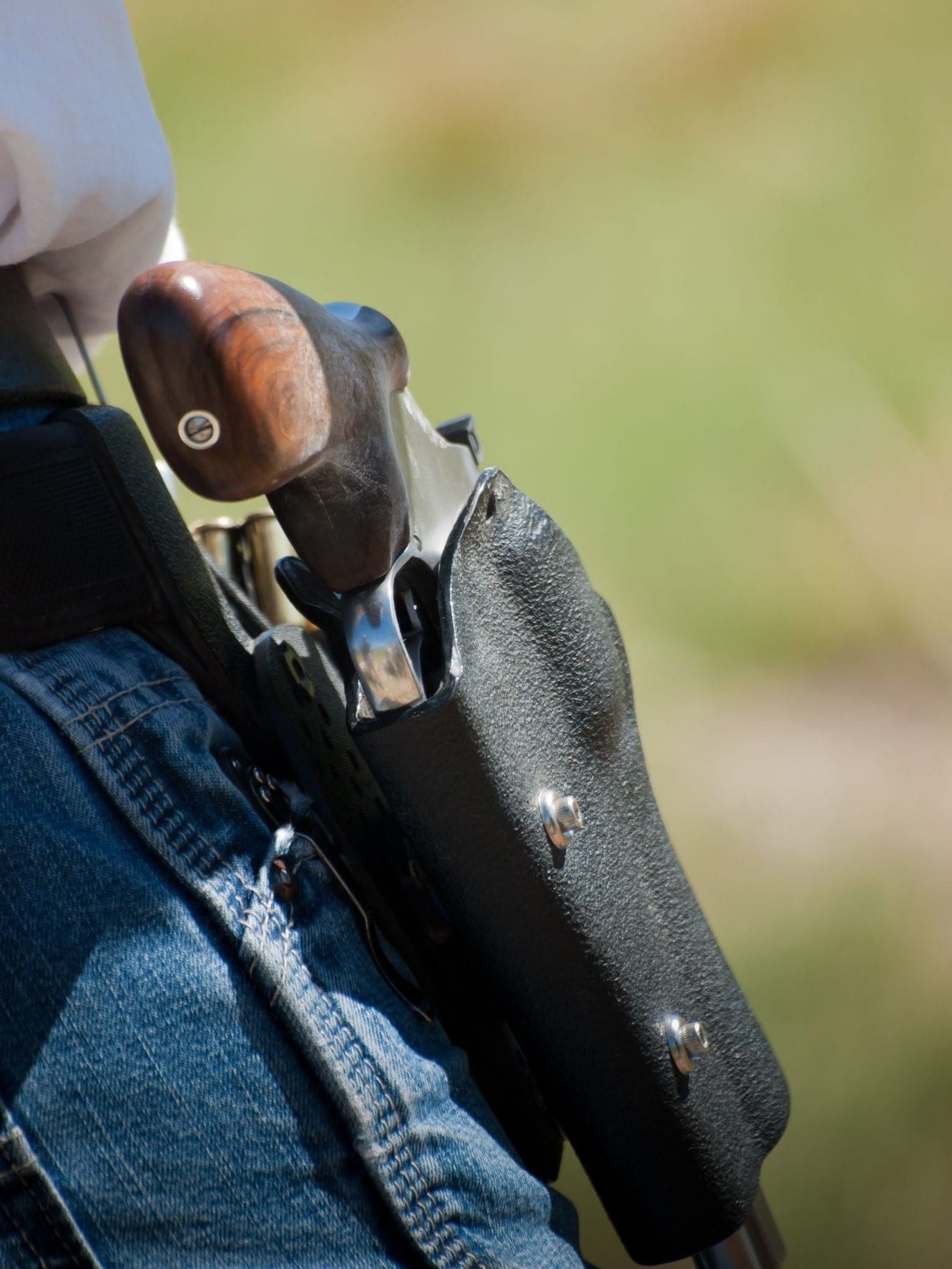Gun laws in North Carolina could see some big changes, and it might not be in the way you expect.
The massacre of 49 people at an Orlando nightclub in June became a catalyst for heated gun rights debates throughout the country. Many people were moved to speak to local lawmakers and political leaders about how gun restrictions (or loosening gun restrictions) can prevent another mass shooting. The next day, the North Carolina House of Representatives introduced HB 1148, an amendment that would eliminate the requirement to have a concealed carry permit.
You read that right. Concealed carry would be allowed throughout the state – without a permit.
The Gun Rights Amendment will be put to a vote in the upcoming general election in November, so keep an eye out for this on your ballot:
“A constitutional amendment, to become effective December 1, 2016, to repeal the provision which provides that the General Assembly may prohibit the practice of carrying concealed weapons.”
Vote yes to eliminate permit requirements. Vote no to keep them in place.
Overview of Weapon Laws in North Carolina
Under current weapons laws, you can openly carry a weapon in North Carolina without a permit, but there are certain restrictions on who can openly carry a weapon in North Carolina. If you fit one of the following descriptions, you are not allowed to carry a weapon, open or concealed:
- Under the age of 21
- Non-U.S. citizen
- People who have lived in North Carolina for less than 30 days
- People who have been barred from owning firearms under federal law
- Convicted felons or anyone under indictment
- People who have been convicted of specified violent crimes
- People convicted of DUI in the past 3 years
- Fugitives
- People who abuse or are addicted to drugs or alcohol
- People adjudicated as mentally ill
Current Concealed Carry Requirements
Currently, the only place you can legally carry a concealed firearm without a permit is your own private property. Otherwise, you must have your permit on you. If you want to apply for a concealed carry permit, you must fit the following qualifications:
- You must be at least 21 years old
- You must be a U.S. citizen
- You must be a resident of North Carolina for at least 30 days
- You must not suffer from physical/mental disabilities that will not allow you to safely handle a handgun
- You must complete an 8-hour firearms safety training course. The course gives you experience using a firearm, as well as information about laws and penalties for concealed carry and the use of deadly force
Once you have received your permit, you are allowed to carry a concealed weapon near or on your person.
Places Where Firearms Are Prohibited
Unless you are a former or current member of law enforcement, you will not be allowed to carry a gun in the following places:
- Campus/educational property
- Establishments where alcohol is sold (this rule does not apply to the owner)
- Specified state property/courthouses
- Parade, funeral procession, picket line, other demonstrations
- Moments of civil disorder, riots, public disturbances involving at least 3 people
Penalties for Violating Gun Laws
It is important to read and review North Carolina’s gun restrictions and regulations. Breaking them could forfeit your right to carry a gun.
Did you notice earlier that convicted felons cannot carry a gun? Many gun laws violations are considered felonies. Let’s look at common situations and penalties for violating state gun laws:
- Carrying a gun on restricted state property, at a courthouse, parade, or public demonstration: Class 1 Misdemeanor
- Carrying a weapon onto educational property: Class I Felony
- Carrying a weapon during civil disorder: Class H Felony
- Carrying a concealed weapon without a permit (first offense): Class 2 Misdemeanor
- Carrying a concealed weapon without a permit (second offense): Class I Felony
The above penalties could change this upcoming December. If you carry a weapon in North Carolina, it is important to keep yourself updated on changes to gun rights and restrictions. For more help regarding penalties and charges for gun law violations, call a North Carolina criminal lawyer today.
About the Author:
Attorney Mike Schlosser represents victims of personal injury, those charged with a crime, as well as those facing traffic charges. A former Guilford County, North Carolina District Attorney, Schlosser has been in private practice at the Law Firm of Schlosser & Pritchett since 1983 and has been a member of the North Carolina State Bar since 1973.









